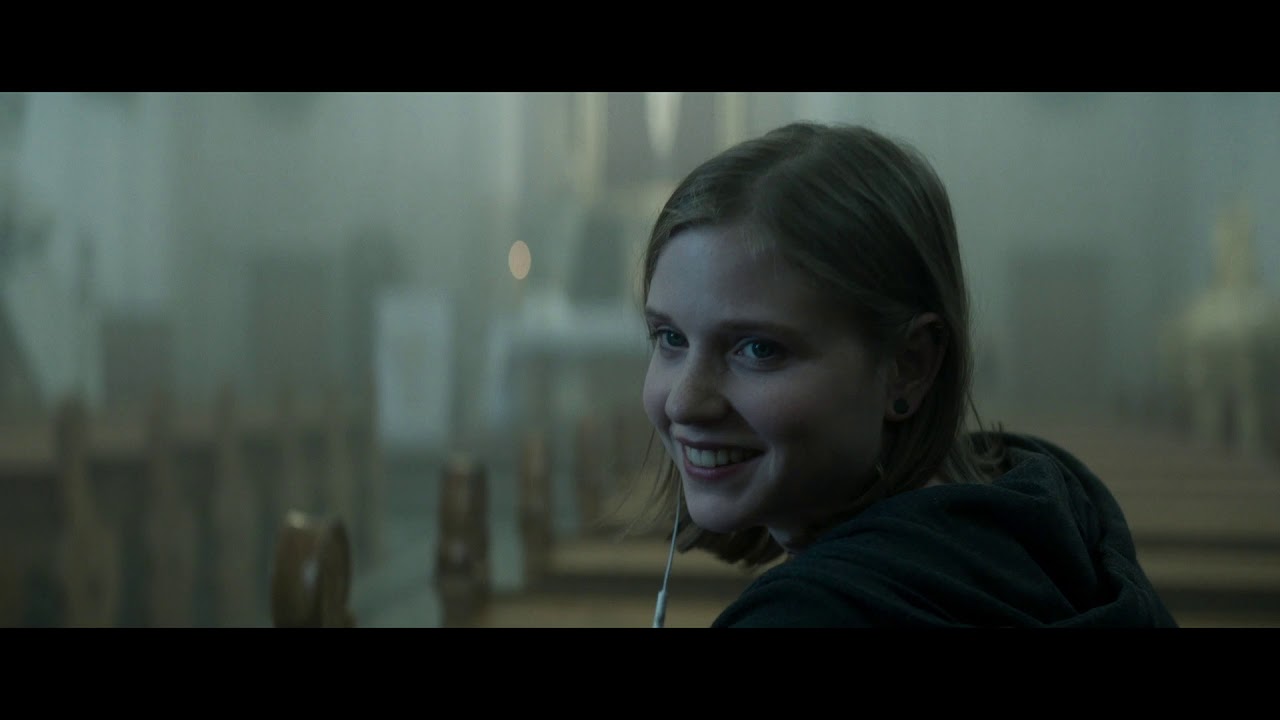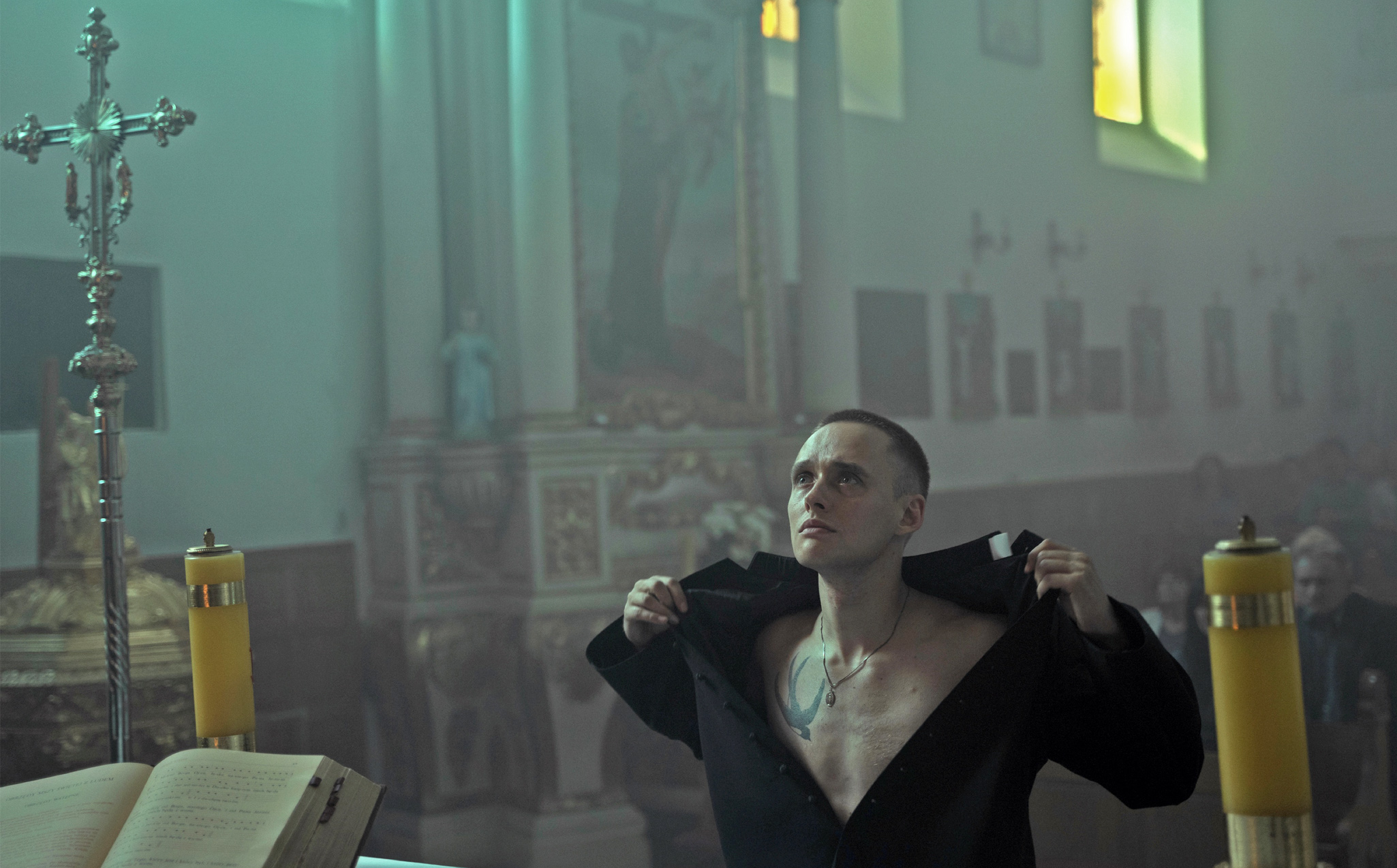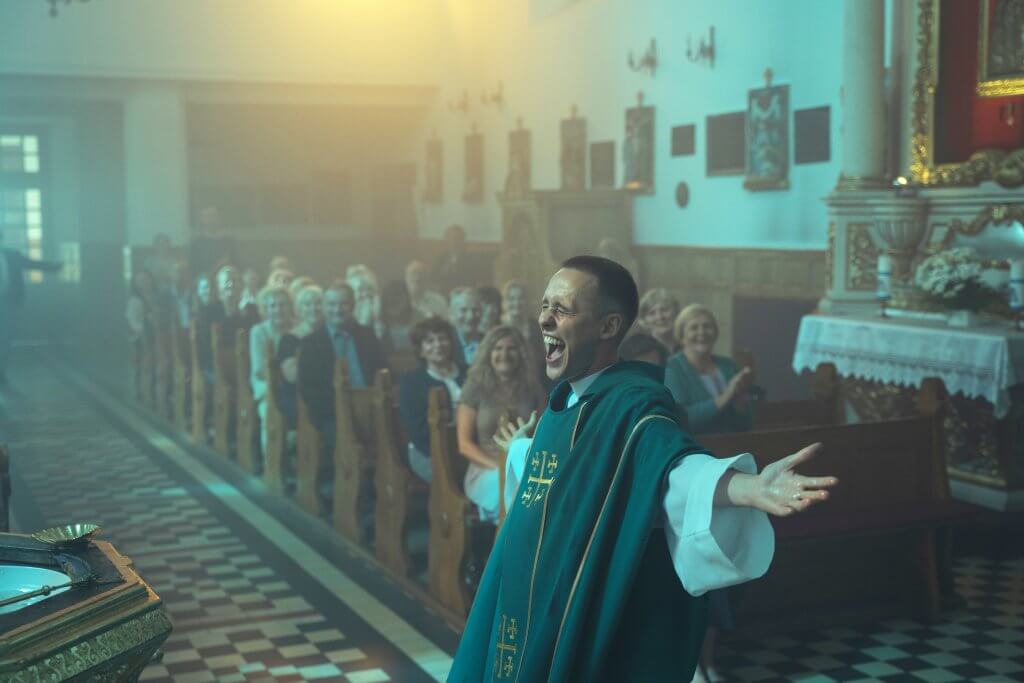Jan Komasa’s 92nd Academy Awards nominee for Best International Feature film Corpus Christi is a religious yet liberal film and strongly deals with the ideologies of redemption and salvation. Even though the film is made on the ground of Christianity, it surely raises some logical and moral questions. It is surely not blasphemous. If religion can be the center point of followers, they have the right to arguments pinpointing good or evil and rejecting the redundant. Religion is the ground on which humans do base their lives, so it must not be anything less than the purest. The pivotal question of the film remains whether past life carries any significance in front of the beloved Lord, the Savior, and the Redeemer.
Jan Komasa’s Corpus Christi is based on Mateusz Pacewicz’s thoroughly researched and restrained screenplay, which is inspired by real-life events in rural Poland. Daniel (Bartosz Bielenia) is kept at a juvenile detention center for second-degree murder. Even though he is compelled to do the regular works at the detention center, his heart is full of spirituality and he sings Christian prayer songs. Deeply inspired by the eloquent quotes of Father Tomasz (Lukasz Simlat) that everyone is the priest of Christ, Daniel’s only motto of life becomes to be a priest.
Father Tomasz confirms that a murder convict can never be a priest. Daniel is released on parole and sent to a small town situated on the other side of Poland to work in a sawmill. Cinematographer Piotr Sobociński Jr. captures the beautiful rural Polish landscape quite efficiently. The usage of desaturated colors on the images complements the theme of suppression and hopelessness amidst rebellion and spiritual desire. The only objective of life is probably to submit oneself to the Redeemer.

Daniel reaches the small town and the assigned sawmill but comes back to a hilly land top to rest a bit. A church is seen nearby. He enters the church for a mass and fakes his identity showing the clergy collar, which he has stolen from father Tomasz, to be assigned to the role of the priest temporarily while the vicar is away for medication. A certain level of conviction is necessary for an impostor to convince the rest of the world. He befriends the daughter named Marta (Eliza Rycembel) of the sexton named Lidia (Aleksandra Konieczna) but Lidia remains skeptical about Daniel’s identity. He starts conducting church services conning parishioners and impersonating a priest.
The town witnessed a horrific accident a few months back, which killed seven people including the driver. The inhabitants keep mourning the loss of those six youngsters and hold the driver responsible for the accident. Multiple accusatory letters were sent to the widow of the driver and he was not allowed to be buried in the same cemetery as others. Daniel objects to this discrimination strongly and portrays a liberal identity of a priest, who solely abides by the ideology of equality. Marta supports Daniel and together they confront the Mayor as well as the townspeople. The initial restriction is cleared off and the driver’s cremated remains are finally allowed to be buried in the same cemetery as others. Daniel’s unorthodox principles win people’s hearts.

Father Tomasz appears at the end of the funeral ceremony and catches Daniel’s forgery. Daniel conducts the farewell mass and puts off his vestment during the mass. He walks off the church and is brought back to the detention center. A ray of hope suddenly turns into abandonment and despair. He wins a fight with the brother of the boy, whom he murdered previously, and is allowed to walk free.

Bartosz Bielenia adds multiple dimensions to the character of ‘Daniel’. Daniel is tough, yet tender; spiritual, yet rebel; an impostor, yet trustworthy. His heart is full of passion, the body is devoted to the services of the beloved Lord, and his mind is filled with spiritual righteousness. Mateusz Pacewicz’s screenplay points out priests as impostors, which is not so uncommon incident in rural Poland. Dialogues carry the liberal spiritual theme of the film. Fight sequences are utterly well crafted. Jan Komasa’s direction is dynamic and thoughtful. The portrayal of the screenplay is not an easy job for this film. His efforts in making Corpus Christi are praiseworthy.
